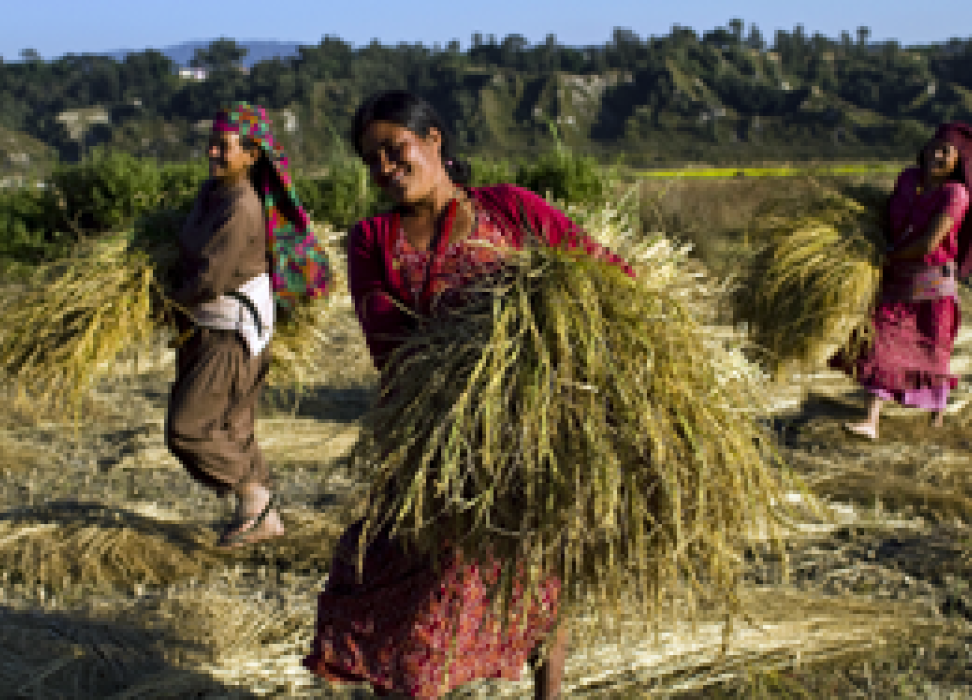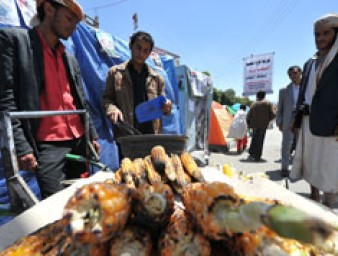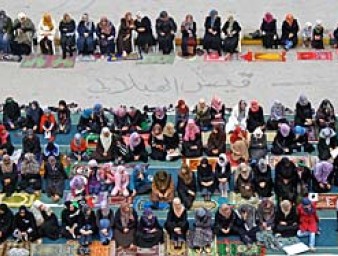Equal access to land for women
19 March 2014

Access to land ownership is key to a life with dignity and a basis for entitlements which can ensure economic independence and therefore, personal empowerment, states a recent report on women’s right to land and other productive resources.
According to the joint publication by the UN Human Rights Office and UN Women, over the past ten years alone, at least 80 million hectares of the world’s land have been acquired in large-scale land deals — an area 20 times the size of the Netherlands. Yet, within this context, it is reported that only one per cent of the world’s women actually own land.
“Despite the fact that many women are legally entitled to equality in access to land, they still experience considerable discrimination in this area,” said the UN Human Rights Office’s Gender and Women’s Rights Advisor, Gaynel Curry, during a side event which launched the publication.
During her opening remarks, Curry highlighted that forced evictions from land have a disproportionate effect on women.
In Kenya, for example, the Marriage and Property Act denies women the right to marital property upon divorce or death of their spouse, unless they can prove they made a contribution to the acquisition of the property during their marriage.
The Act, which came into force in January, could result in the loss of land for many Kenyan women as it is expected that very few will be able to demonstrate such a contribution, said Frances Raday, a UN independent expert to the UN Convention on the Elimination of Discrimination against Women Committee (CEDAW).
Many rural households in Kenya are headed by women, who rely on the land not only to produce food, but also on the income generated by it to access health care services and educational opportunities for themselves and their families.
“Women will effectively have no security of tenure, or place to live with their children if their husband leaves them or dies, which will also increase their risk of experiencing violence,” Raday added.
The report explains that in many communities gender disparities with regard to land are linked to assumptions that men, as “heads of households”, control and manage land — implicitly reflecting ideas that women are incapable of managing land effectively and that men provide for women’s financial security.
Discriminatory inheritance is also an area of concern, according to the report.
In many countries in the Middle East and North Africa, a woman’s inheritance will often be half that of a man in the same position, a practice justified by a man’s duties under Sharia law (or Islamic law) to support the women of their families, the report states.
However, some countries have altered the application of Islamic law when it comes to matters of inheritance. Under the Turkish Civil Code, for example, sons and daughters inherit equal shares of their parent’s estate without discrimination.
“Yet, even where laws have been changed to guarantee women equal rights in the area of inheritance, family and social pressure can lead women to renounce their entitlements,” said Curry.
Curry recounted the story of her close friend in the Caribbean, who has 6 children: 3 boys and 3 girls. To help their children, the parents divided their property into three plots of land: one for each son. When the parents were asked why they did not give their girls any land, their response was “they will have husbands who will take care of them”.
Today, fifteen years after the property was divided, the girls are not married, nor are likely to be married. “These women not only lost their inherence rights but have plunged themselves into tremendous debt through mortgages to ensure appropriate affordable housing,” said Curry. She added that the parents’ actions may have a long term negative impact on the quality of life of their daughters and can impede their realization of a range of rights.
In order to ensure women’s equal access to land, Curry highlighted the importance of raising awareness at the national level of the changing gender dynamics around land and holding countries accountable for ensuring women’s equal access to land and other productive resources.
The report, which was launched on 14 March at a UN Human Rights Office and UN Women side event in New York, provides several policy guidelines for realizing women’s land rights for lawmakers.
19 March 2014




